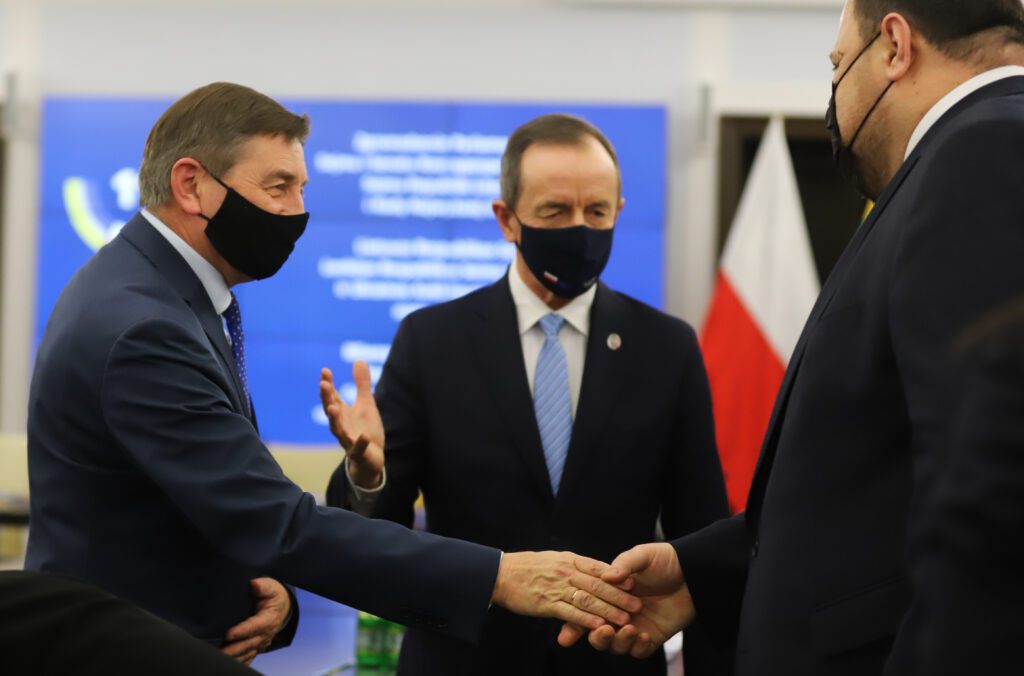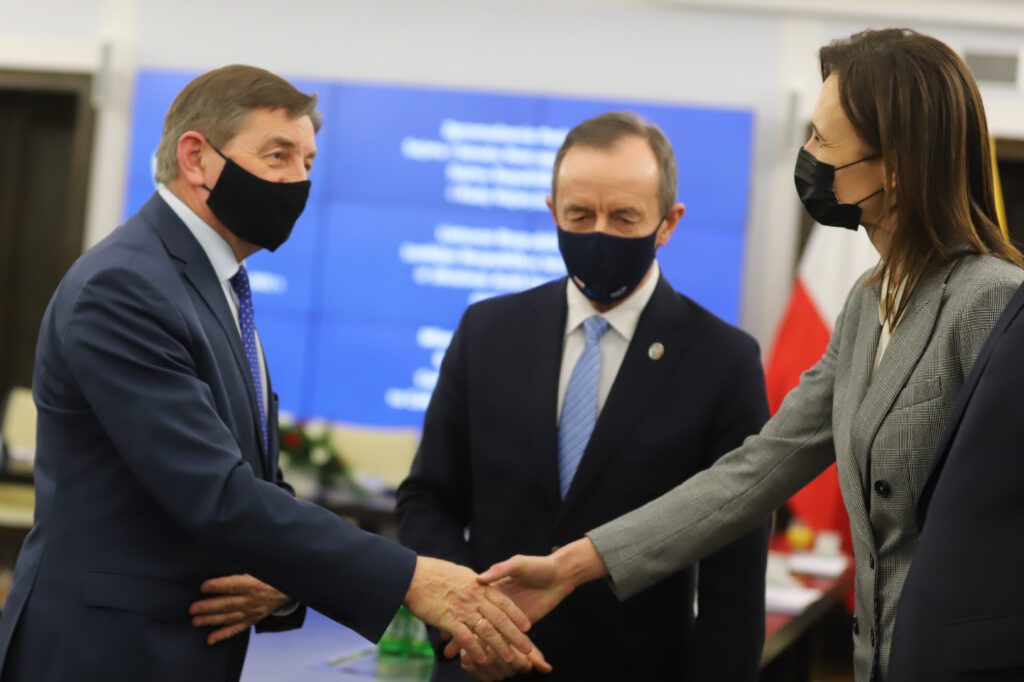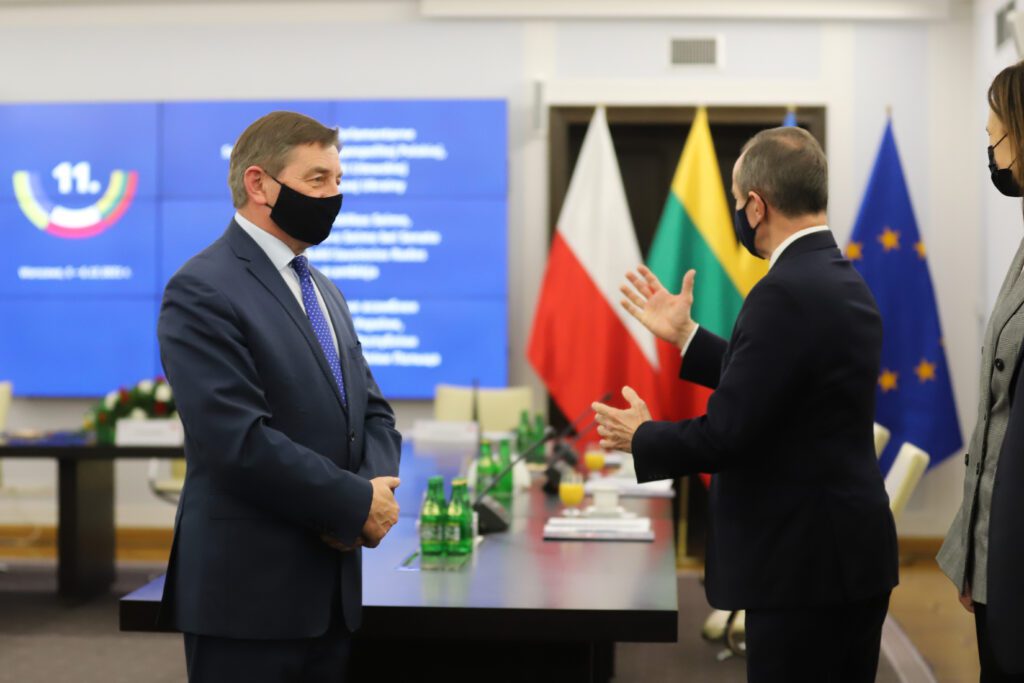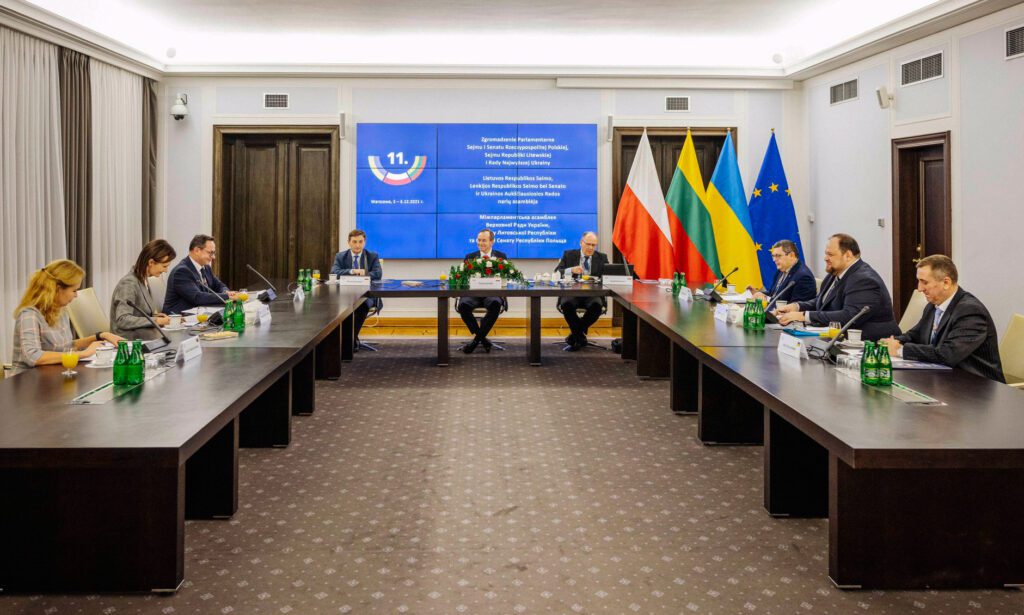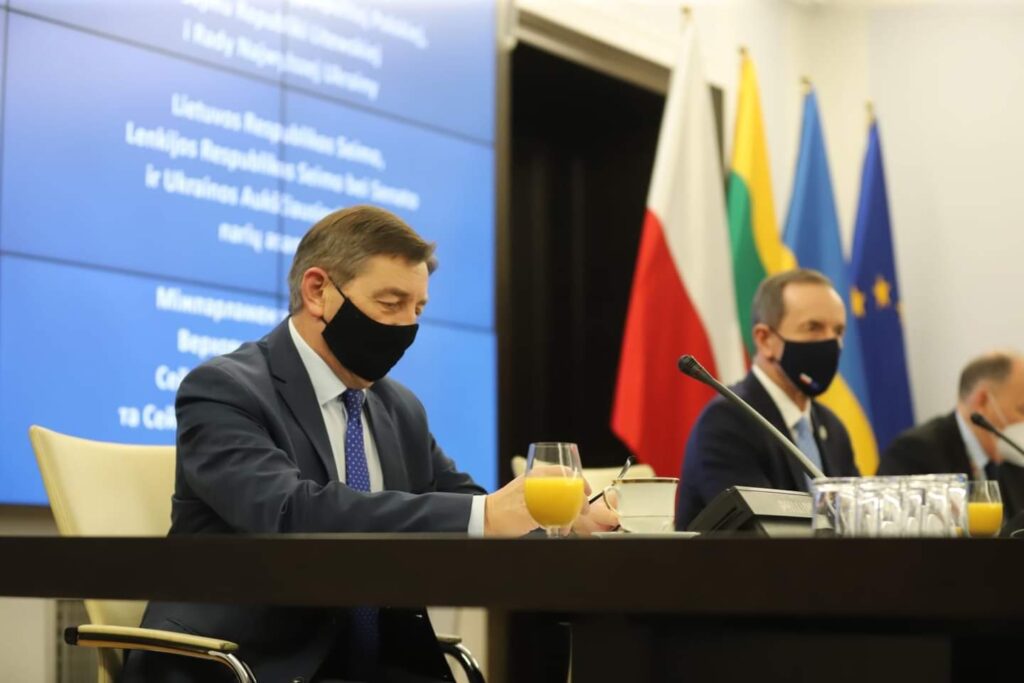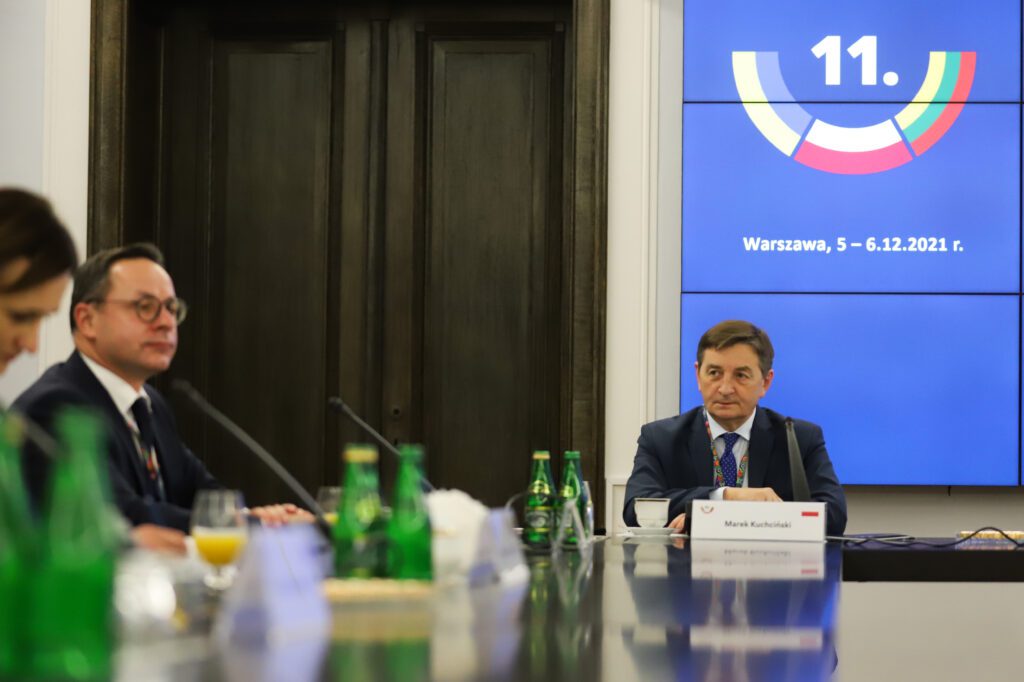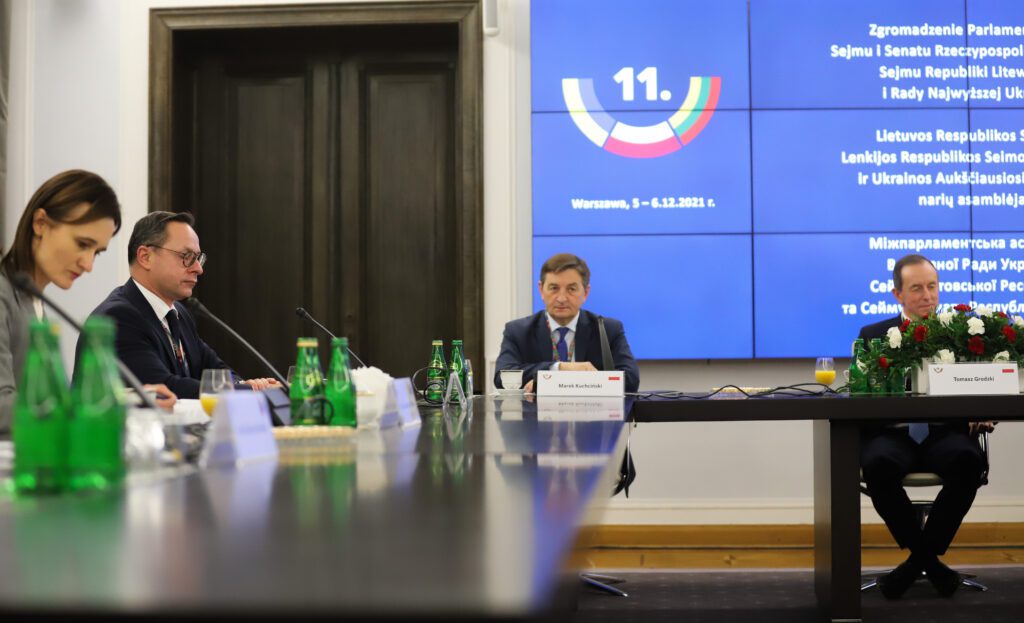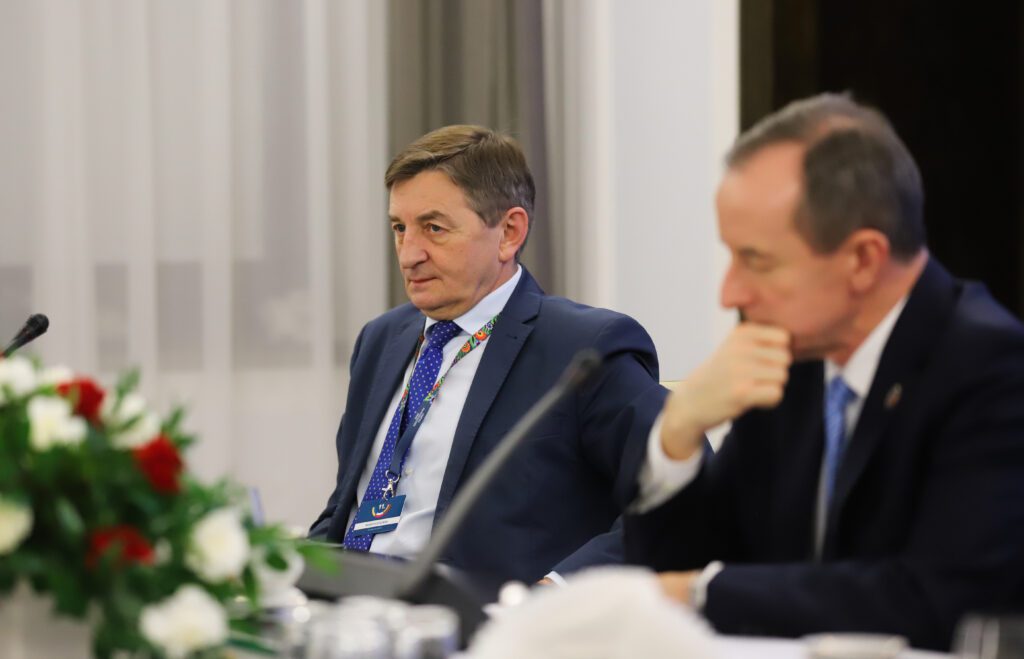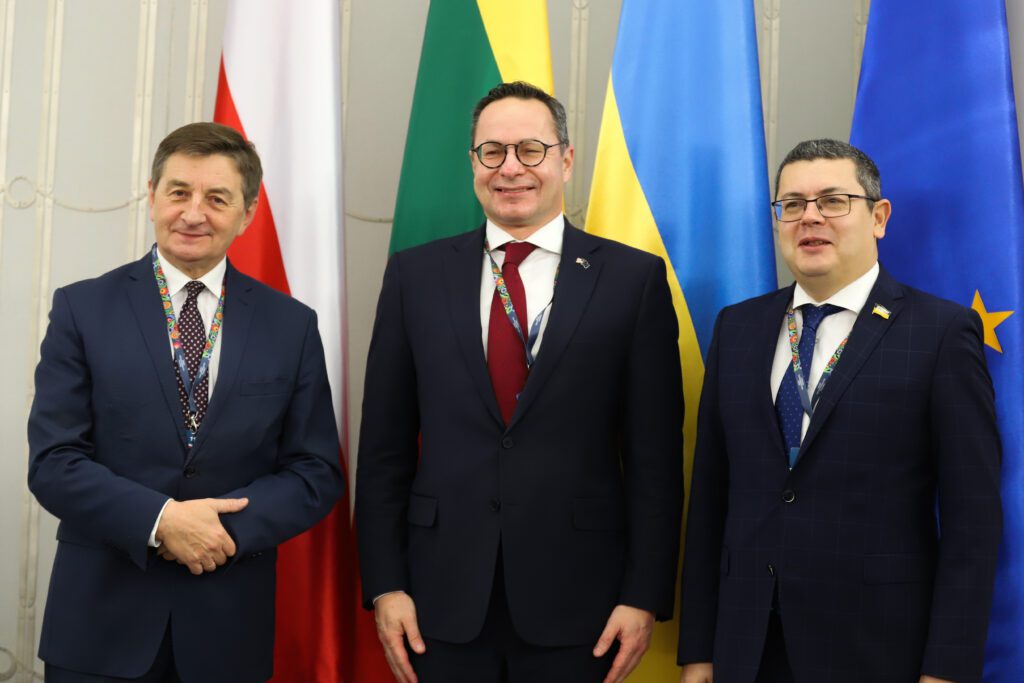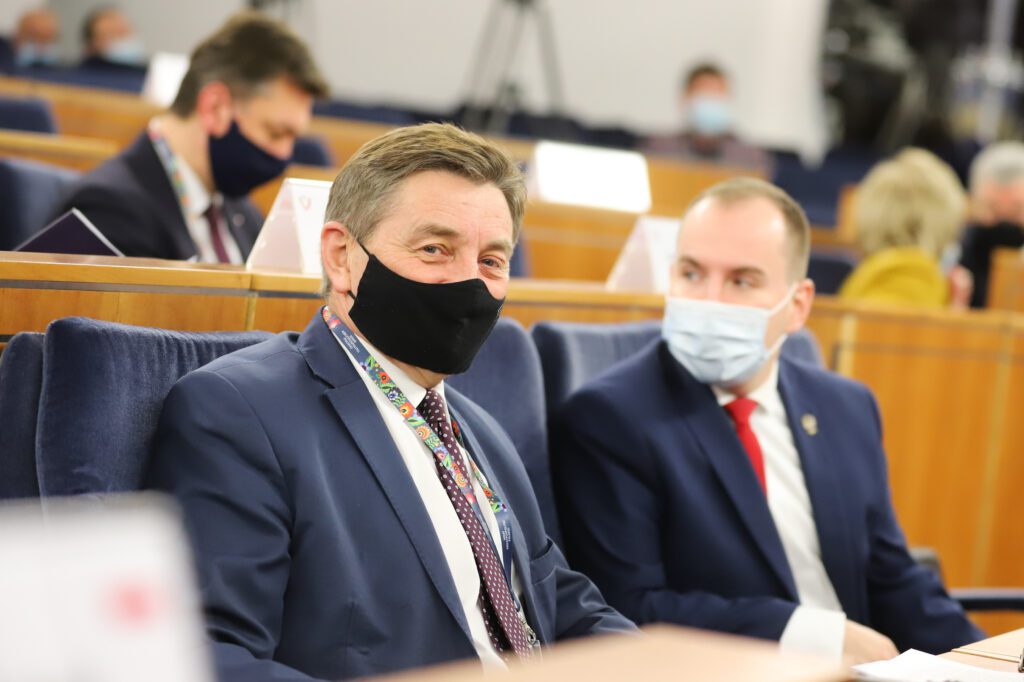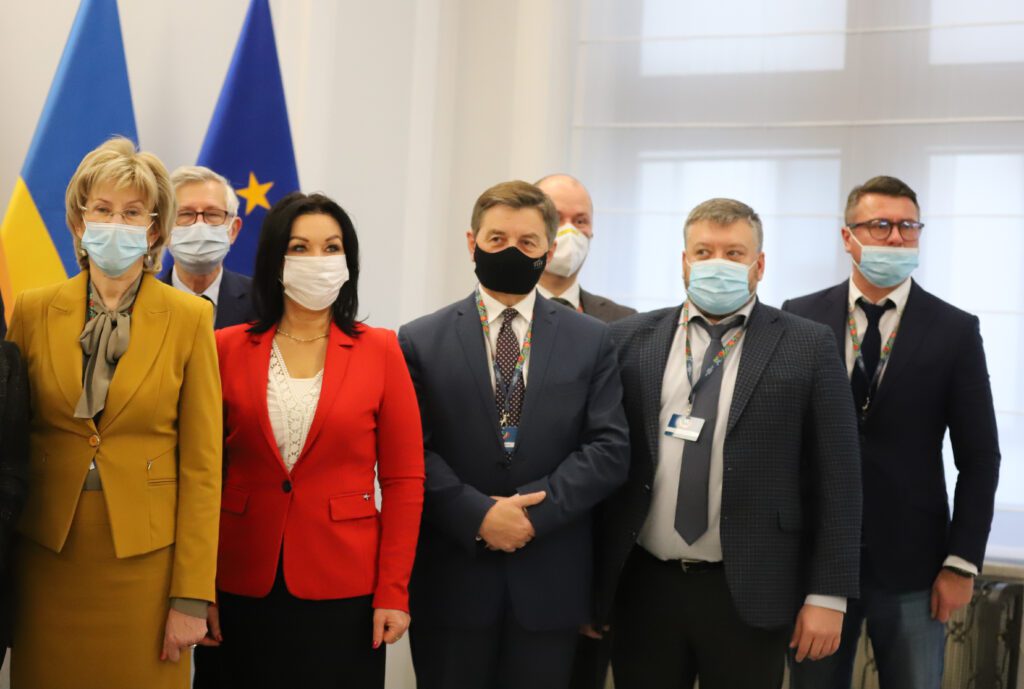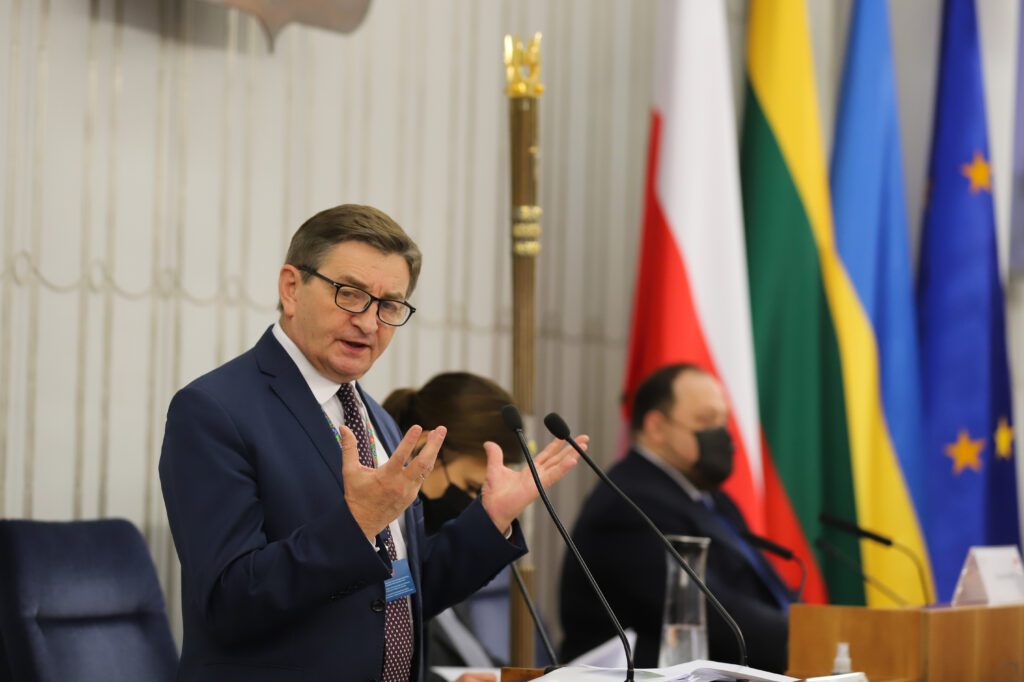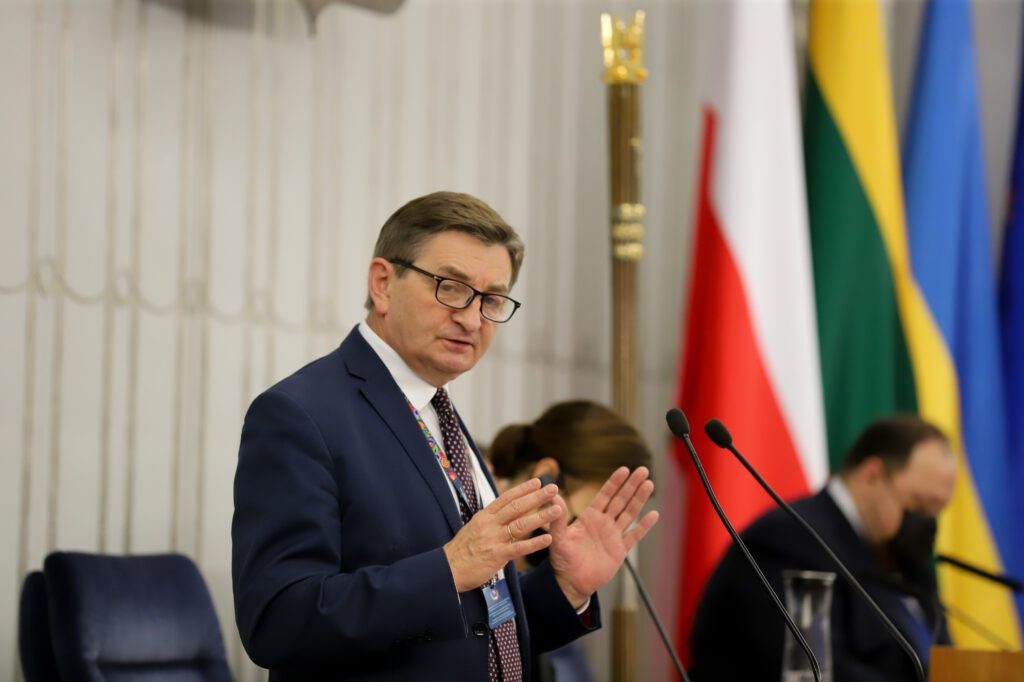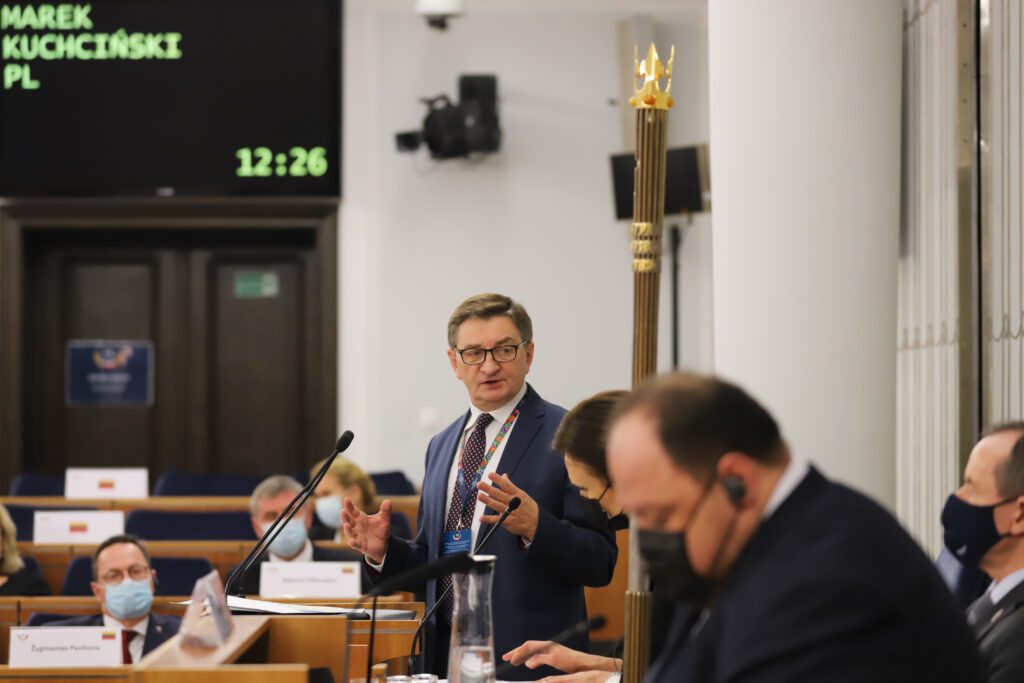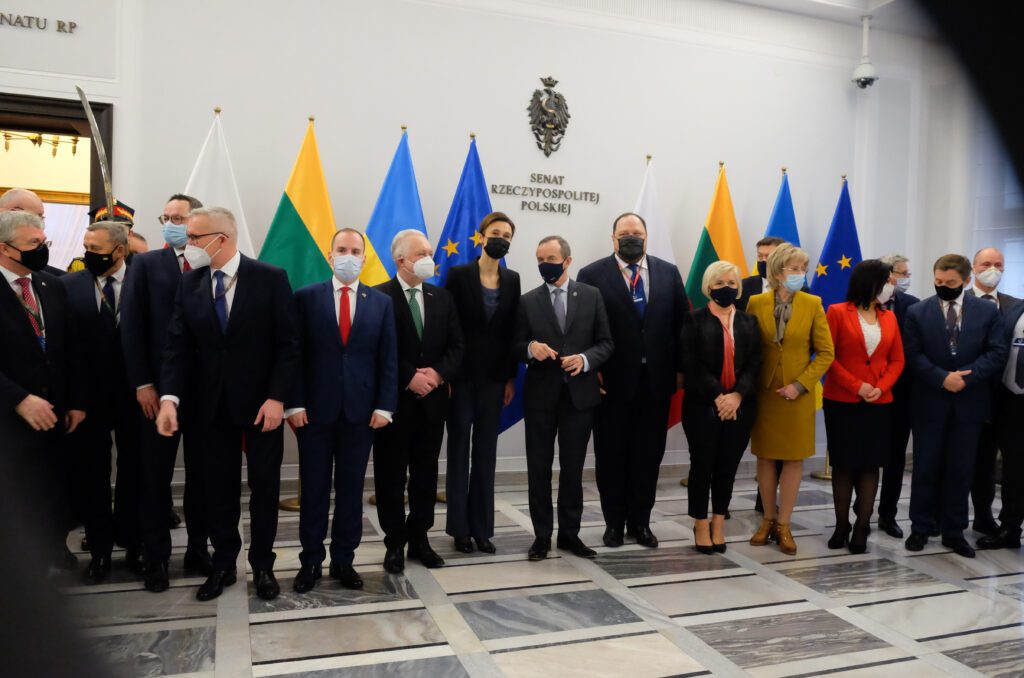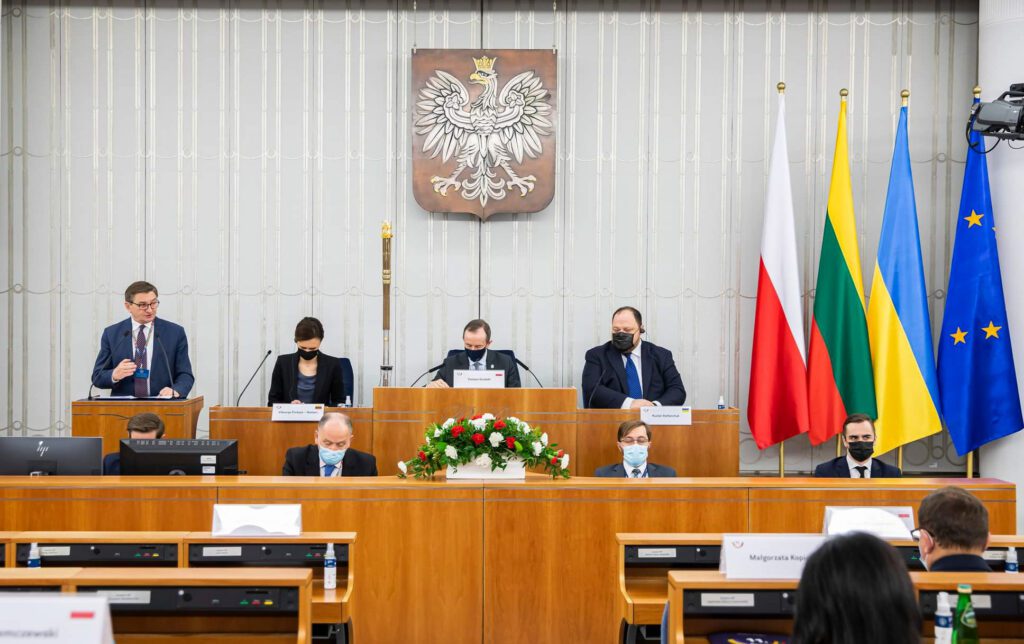Marek Kuchciński On Sunday, the presidium of the Assembly met, and on Monday plenary sessions were held. The Presidium of the Assembly met on Sunday, and the plenary session was held on Monday.
The Polish delegation is led by the Speaker of the Senate Tomasz GrodzkiMarek Kuchcinski, former Speaker of the Sejm and current head of the Foreign Affairs Committee (FAC), serves as its vice chairman.
As part of the Assembly, the head of the Commission met with his counterparts - Žygimantas Pavilionis from Lithuania and Oleksandr Merezhka from Ukraine. He presented the joint findings during a plenary session in the Senate.
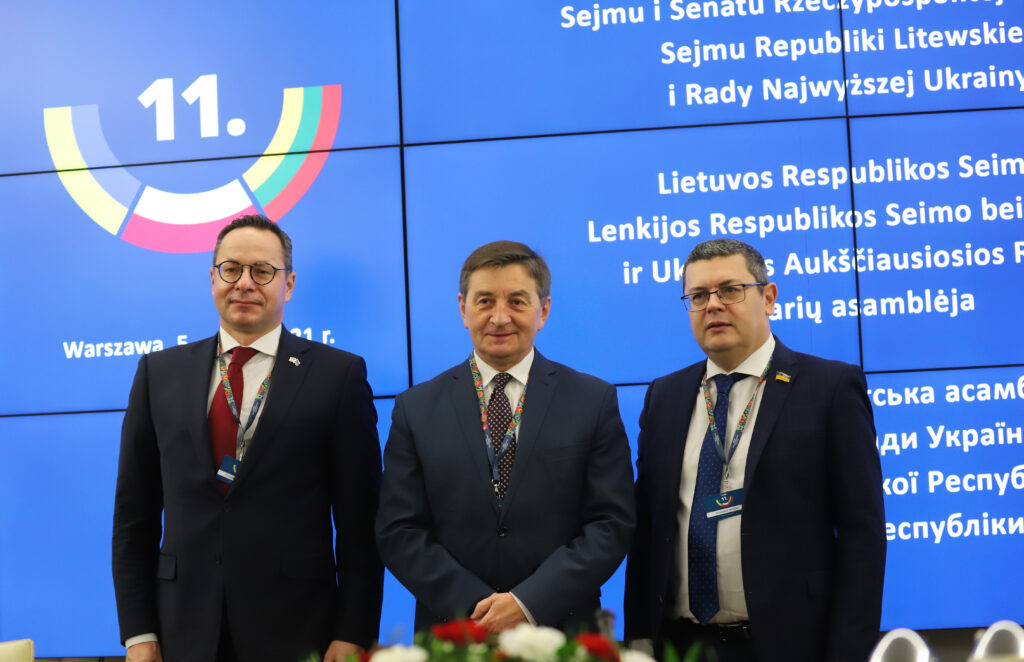
Marek Kuchciński argued that in view of the lack of progress in Ukraine's integration into the EU and NATO, it is necessary to propose a realistic program of practical measures aimed at maintaining the pro-Western direction of Ukrainian policy, despite the persistent reluctance of the West to open up to Ukraine. He presented his proposals in paragraphs:
- In Poland, we believe that a safe, prosperous and pro-Western Ukraine is in the national interest of Poland. Therefore, one of the most important issues is:
- Ukraine's support to ensure its security. And this is what its membership in NATO is supposed to serve.
- The goal is also the economic development of the country and the well-being of its citizens, to which EU membership is the path.
Security (NATO) takes precedence over all other goals because in order to make any policy, you have to exist in the first place.
So far, the momentum of Ukraine's further rapprochement with the EU has faded after three successes: (1) Association Agreement with the EU, and within its framework (2) Deepened and Comprehensive EU-Ukraine Free Trade Area - DCFTA; (3) Visa-free travel.
Further strategic goals of this stature cannot be achieved in the foreseeable future.
The stoppage of Ukraine's EU integration process is a result of the internal situation in the EU, not in Ukraine.
Ukraine naturally has its "homework to do" in the area of internal reforms, which will improve the efficiency of the Ukrainian state and the efficiency of its economy, but it is not the state of progress of their implementation that determines the nature of EU-Ukraine relations.
The main reason for the slowdown in the process of opening up the EU and NATO to Ukraine is the reluctance of public opinion in leading Western European countries to continue with the open door policy. The governments of these countries are under electoral pressure from their citizens and will not risk their own political position for the sake of continuing the policy of EU or NATO enlargement. This phenomenon is permanent and will not change in the coming years. It is based, among other things, on the fact that Western societies do not perceive the threat posed by Russia, while at the same time the EU elites want to transform the EU into a federal superstate. The situation in the U.S. - decisive for the inclusion of Ukraine in the Western system of common defense - is different.
Therefore, our task is to develop a program to push our interests despite the difficulties described.
Within the framework of EU policies, the Eastern Partnership remains the basic structural instrument for bringing Ukraine closer to the EU, despite its crisis, which is visible in Armenia's relations with Azerbaijan or the situation in Belarus. Lessons have already been learnt - Ukraine, together with Moldova and Georgia, has established an Association Trio. Further actions should be based on this reasonable step of diplomacy of Kyiv, Chisinau and Tbilisi.
PROGRAM OF ACTION:
We represent the parliaments of our countries and therefore our agenda should have a dimension of parliamentary diplomacy. I propose therefore:
Establish a "structural dialogue" (regular meetings) of parliamentary delegations of Poland, the Baltic States and Ukraine, Moldova and Georgia in a 4+3 formula, in order to constantly remind of the progress on the road to the EU and NATO.
- Meetings would be held at least once per EU presidency to submit:
- Each successive EU presidency postulates and argues in support of the process of deepening the relationship of S3 countries with the EU,
Secretary General of NATO in deepening their cooperation with the North Atlantic Alliance.
Such a step requires the approval of the parliaments of Georgia and Moldova - which are not represented here. Our first task is therefore to address them with a proposal on this matter.
Establish permanent cooperation between the parliamentary committees on foreign affairs and justice and human rights with the task of preparing a joint annual report on human rights violations in the Russian-occupied territories of Ukraine, Georgia, and Moldova. Such a report on behalf of the 4+3 group should be submitted to the Foreign Affairs and Human Rights Committees of the European Parliament for information, as well as to relevant UN and OSCE institutions. The optimal solution would be to strengthen politically such reports by inviting the relevant parliamentary committees of Scandinavian countries and Romania, as well as the Czech Republic, which in 2014 experienced acts of armed terror by Russian special services on its own territory, resulting in the death of Czech citizens. The Czech presidency of the EU in the second half of 2022 predestines the country to play a special role in that period.
Involve Ukraine in infrastructure projects within the Tri-More-Regional framework wherever possible. The Tri-Central European Initiative (IT) is a project to transform the single European market, declared in the Single European Act and so far present in Central Europe mainly in legal terms, into something that also exists in infrastructural terms. These realities determine the pace and quality of economic development: the exchange of trade and services in the region, the transformation of our countries into markets not only for the leading EU economies, but also for each other. Ukraine should be included in the system of infrastructural connections built in the Tri-City, despite the fact that as long as it will not be a member state of the EU it will not be able to formally become a state belonging also to IT. What matters, however, is the development of infrastructural connections incorporating Ukraine into the single European market (material effect). -
Encourage our governments to identify projects that would address specific areas of possible deepening of EU-Ukraine cooperation, but would not provoke resistance from voters in Western European countries who are reluctant to expand the EU. The EU-Ukraine Common Aviation Area Agreement signed on 12 October is an example of such a project already implemented. An example of such a project already implemented is the Agreement on a Common Aviation Area between the EU and Ukraine signed on 12 October this year, and another project may be to include Ukraine in a common area with the EU in the area of telephone roaming or the system of banking services.
Inspire our governments to take the initiative at the EU forum to expand the mandate of the European Union Advisory Mission in Ukraine (EUAM) to include elements of training and material support (equipment and supplies) for the Ukrainian police, border guards and other Ukrainian non-military uniformed services in tasks such as border protection and mobilization. These tasks are performed by similar services in our countries in situations of military and/or hybrid threats to national security. The experience of Poland, Lithuania and Latvia in the current crisis on the border with Belarus and the exemplary Estonian system of mobilization of these services, modelled to a large extent on the Finnish system, encourage us to raise this initiative.
I have presented to you a method of small steps that can become a policy of setting achievable concrete goals and practical solutions. Successes achieved in this way could be presented to the Ukrainian public in order to sustain its will to continue its efforts to deepen its ties with the EU and NATO and allow us to look forward to an economic turnaround that reopens the way to Ukraine's full membership in both these organizations.
Indeed, full membership in the EU and NATO is the most powerful tool to ensure that Ukraine, and with it our countries, achieve the main goal - the security and prosperity of our countries and citizens in Central Europe.
Photo by M. Olejnik
